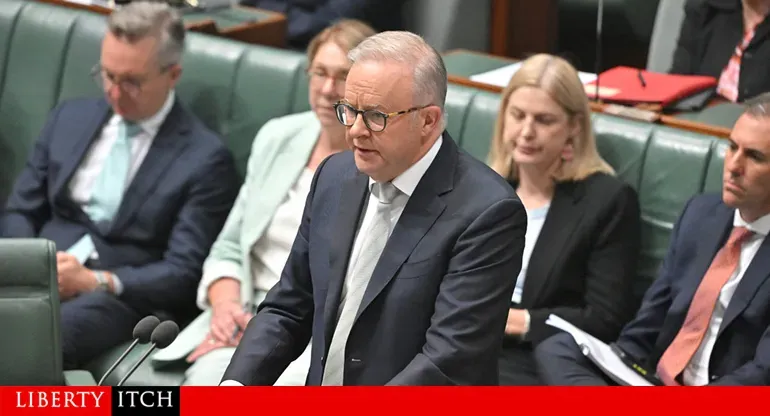Table of Contents
Doesn’t China have McDonald’s? I bring this up because of Thomas Friedman’s famous dictum – or wishful thinking – that countries with McDonald’s don’t go to war with each other.
Of course, Friedman’s argument is more of a guideline than a rule. India and Pakistan, both home to McDonalds, kinda-sorta had a war-ish for two months in 1999. Several McDonalds-owning nations have devolved into civil conflict. But, in many ways, those are the exceptions that prove Friedman’s rule: nations sufficiently capitalised to have McDonalds franchises generally avoid ruinous, expensive wars with each other.
So great power wars now seem almost unthinkable. Almost.
China is throwing its weight around, big-time, in the South Pacific. From manufacturing “islands” out of sandbars and claiming them as “Chinese territorial waters”, to monstering neighbouring Taiwan and Japan, to ramming Vietnamese and Filipino fishing vessels, China is behaving like a thousand-pound panda. Then there’s its diplomatic and trade bullying of Australia.
So it is that even “China Joe” Biden is continuing Trump’s withdrawal from Afghanistan and talking up the “stiff competition we’re facing from an increasingly assertive China”.
Even more worryingly, Australia’s Home Affairs – and rumoured to soon be Defence – Minister Michael Pezzullo sent an Anzac Day message, warning that, “Today, as free nations again hear the beating drums and watch worryingly the militarisation of issues that we had, until recent years, thought unlikely to be catalysts for war, let us continue to search unceasingly for the chance for peace while bracing again, yet again, for the curse of war.”
Last year, PM Scott Morrison publicly fretted about a 1930s-style “existential threat”, harking back to 1930s Europe, which failed to “heed the drums of war” until it was too late.
China seems in many ways to be banking on an America exhausted by decades of conflict in Afghanistan. Donald Trump made ending America’s “endless wars” a key promise – one that he kept. The Biden withdrawal from Afghanistan is merely the realisation of a Trump policy long in the works.
Except that Joe Biden seems to be talking up the withdrawal as a kind of deck-clearing for a new conflict.
Biden said in his April 14 announcement: “Rather than return to war with the Taliban, we have to focus on the challenges that are in front of us.”
The top two? He cited the need to disrupt terrorist networks worldwide, and to “shore up American competitiveness to meet the stiff competition we’re facing from an increasingly assertive China”.
It’s not just Afghanistan that has sapped America. Under Biden’s old boss, the US military budget was cut dramatically. Most foolishly, its blue-water fleet. When Republican presidential contender Mitt Romney openly fretted about America’s declining navy, Obama smirked and haw-haw-hawed about “horses and bayonets”. The lickspittle media yuck-yucked along.
That joke, as the Smiths said, isn’t funny any more.
Trump increased military spending – to howls from the peanut gallery – but the Pentagon still has 10% less money than a decade ago. Thanks, Obama.
By increasing military spending while mounting a staged withdrawal from Middle East quagmires, Trump was in fact echoing the thinking of Eisenhower and Macarthur: keep war as a last resort, but be ready with overpowering force.
And if China does move against Taiwan militarily, two grave questions immediately present themselves. Will the US defend Taiwan? Biden’s rhetoric is moving to suggest it would indeed use force to protect the democratic island of 25 million from a Beijing takeover.
Second, would Australia send forces in support? Australia’s rhetoric is studiously noncommittal. But every trend in recent years moves Canberra closer to supporting any US action against Beijing. The most powerful of those trends, of course, is China’s own aggression.
But, as the ANU’s Hugh White points out in The Financial Review, this war would be different: “It would be nothing like Afghanistan, a small war in a distant place that has touched very few of us. It would be more like the world wars of the 20th century – and perhaps worse, if it were to go nuclear.”
“The costs of not going to war over Taiwan would be real and serious, but those costs cannot be avoided by fighting a war that cannot be won.”
Sydney Morning Herald
I often call China “the Nazi Germany of the 21st century”, but who really wants to see yet another global war?
A global war could have been avoided in 1939 if only liberal democracies had shown a modicum of nerve earlier. When the Nazis remilitarised the Rhineland, they took a desperate gamble: they were militarily weak and they knew it. The merest shove back from the Allies would have crushed the Wehrmacht and popped the whole Hitlerian balloon.
Instead, to their amazement, the Allies let them get away with it – and kept doing so for three more years, giving the Nazis much of the time they needed.
By steadily weakening America’s diplomatic and military strength, the Obama administration allowed China the space to flex its muscles in the Asia-Pacific. The challenge he left his successors – containing China short of actual, ruinous war – is concomitantly that much harder.
Let’s hope McDonalds works its peacekeeping magic this time.
Please share this article so that others can discover The BFD








